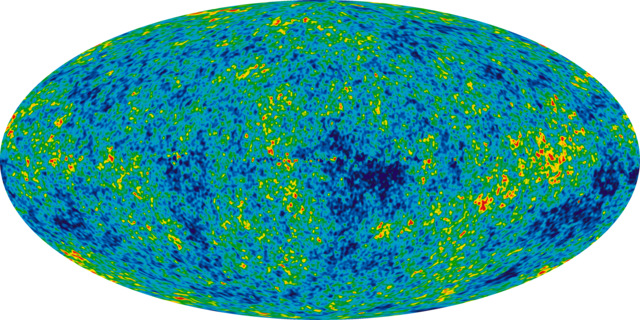Christmas season lasts literally a quarter of the year now, therefore his argument is invalid.
quarrk
are they adding extra ethanol or something?
Yes. 88 has up to 15% ethanol. You should check your manual before using it.
The direction of the swirl depends in which hemisphere it was produced.
I agree. I have a few more thoughts to add to this.
Workers in the imperial core have a responsibility to see past their immediate circumstances in order to understand that the exploitation of the global proletariat is fundamentally linked with their own exploitation. That although a worker in a rich country may be materially better off than a worker in a poor country, they have more in common, in terms of class position, with the global proletariat than with the bourgeoisie. A western worker who doesn't identify with the global proletariat has an incorrect understanding of their own position.
Superexploitation is not only real, but absolutely integral to contemporary capitalism. Therefore anti-imperialism is an indispensable part of any anti-capitalist movement. A movement which aims only to improve working conditions in rich countries is basically a white socialism, a socialism aiming only for the economic liberation of a subset of privileged workers (the labor aristocracy).
However, it doesn't follow that any organization whatsoever in rich countries is identical to a labor-aristocratic struggle.
If the global average wage is, say, $1 per hour, this says nothing about the material conditions of a worker receiving this average wage. In the US, this wage corresponds to far fewer goods than in Bangladesh. So it would be severely over-simplifying to simply compare a given worker's salary to the global average and declare that any worker earning above the average is benefiting from imperialism, therefore labor-aristocratic. There must necessarily be an analysis of the material conditions of that worker where they live. As well, in the US for example, 7.5% of the population is unemployed or under-employed. This population may receive a wage many times larger than the global average, yet still be unable to afford food or housing or medical care. It would be wrong to say that these people share a class interest with the lanyards working in DC merely because they are American workers.
To be honest, it was only in college that I began to shed my competitive mindset and casual aspirations of greatness. I always measured my success in my hobbies relative to the skills of others, whether it's a sport, a video game, or my area of education (physics). While I still enjoy competition today, it does not feel important anymore that I win.
Physics is a particularly "Great Man"-ified field of study. All the famous equations and theories have names associated to them. The most brilliant physicists get Nobel awards and are treated as demigods. I greatly admired and looked up to these people, and I wanted to become like them, because a) I wanted the recognition of greatness, and b) I believed real progress in the field depended on these individual contributions.
Going into college, I studied so that I could one day become a professor, someone that could inspire the next generation by passing down my sagely intelligence to eager students, like Richard Feynman and Albert Einstein.
Leaving college, I was utterly disillusioned with this mindset. First, I realized my own mediocrity. Second, I realized how insignificant individuals are when confronting the profoundest questions in physics. A large number of physicists understand quantum theory just as well as did Stephen Hawking. Many physicists make just as incredible theoretical contributions as did Hawking, but with less fanfare. Inch by inch, I lost the belief that the famous individuals were particularly unique in their intelligence, and started to believe that these accomplishments were almost entirely due to sheer force of will. All of these great thinkers were great because they put in a ton of work over lifetimes. And often, this work was couched in a supportive group of family, and friends, and intellectual colleagues. Einstein, for example, was only capable of developing the differential geometry requisite for relativity thanks to the contributions a mathematician friend, Marcel Grossman.
In my working career, I have seen how much the success of projects depends on a few experts who prefer to stay out of the spotlight, while credit often is given to the project leadership who only have a superficial knowledge of the details.
Growing past this mindset has largely been an acceptance of mediocrity, and observing how toxic it is to believe that mediocrity is a sign of laziness or lack of passion.
If genius is not a total myth, it is greatly exaggerated. Barring physical deformity, humans have approximately equal intelligence. The social and material conditions of each person's life are far greater determinants of individual success than the particular manifestation of their brain folds.
The math educator Grant Sanderson (youtube: 3Blue1Brown) made some of these ideas the theme of his Stanford math commencement speech in 2023: https://www.youtube.com/watch?v=z7GVHB2wiyg

The statement, “I hate owls,” begs the question: what do you mean by hate? Because when you are dealing with fundamental reality and you pose a statement, you have to understand that the reality of the concepts of your statement, when you’re digging that deep, are just as possible as what you’re posing!
You know, some people say to me, what do you — do you believe in God?
What do you mean do? What do you mean you? What do you mean believe? What do you mean God? And you say, as the questioner: “Well, we already know what all those things mean, except belief and God.”
And I think: No!
If we’re going to get down to the fundamental brass tacks, we don’t really know what any of those things mean.
It’s expensive to rebuild all these ships
I tried a few AI text to speech generators, but they are all paywalled, fake, or don’t work
The term billionaire was named after him for a reason

Trump himself said that and it’s probably true lol. The only difference is that Red MAGA doesn’t care, while Blue maintains intense cognitive dissonance.










I have been addicted to southeast Asian food since I first started consistently eating it in college. Hard to pick between Vietnamese, Indonesian, and Filipino but they’re all delicious.
Not related to the struggle session, whoops. I guess France is like 1% responsible for some Vietnamese dishes.